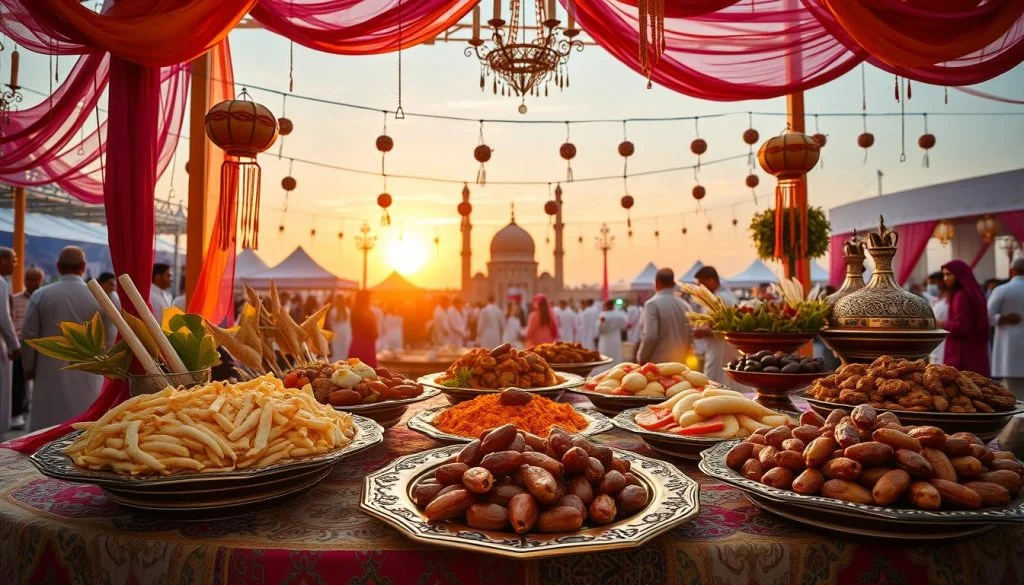Ramadan in Qatar: A Journey Through Time-Honored Traditions
Ramadan, the ninth and most significant month of the Islamic lunar calendar, holds a special place in the hearts of Muslims worldwide. In Qatar, this holy month is observed with deep reverence, bringing together communities in fasting, reflection, and celebration. The traditions practiced during Ramadan in Qatar offer a unique glimpse into the nation’s rich cultural tapestry.
The Commencement of Ramadan
The start of Ramadan in Qatar is determined by the Moon Sighting Committee under the Ministry of Endowments and Islamic Affairs (Awqaf). The committee observes the appearance of the crescent moon to announce the beginning and end of the holy month. Lunar months typically last between 29 to 30 days, depending on the moon’s sighting, which also signals the conclusion of Ramadan and the onset of Eid celebrations.
Al Naflah: A Prelude to Ramadan
Approximately two weeks before Ramadan begins, Qataris observe a tradition known as Al Naflah on the 14th day of Sha’ban, the eighth month of the Islamic calendar. Families prepare and share platters of traditional foods with neighbors and those in need, fostering a sense of community and generosity that sets the tone for the upcoming holy month.
The Rhythm of Fasting and Feasting
Fasting during Ramadan involves abstaining from food and drink from sunrise to sunset. The day begins with suhoor, a pre-dawn meal that provides sustenance for the day’s fast. At sunset, the fast is broken with iftar, a meal that often starts with dates and water, followed by a variety of traditional dishes. In Qatar, the end of the daily fast is traditionally marked by the firing of a cannon, a practice that continues to this day and is broadcast live on Qatar TV. To witness this tradition in person, one can visit locations such as Souq Waqif, Katara, the Muhammad Ibn Abdul Wahhab Grand Mosque, or Souq Al Wakra.
Culinary Delights of Ramadan
Ramadan in Qatar is synonymous with a variety of special dishes that are prepared exclusively during this month. Some of the staples on Qatari iftar tables include:
- Harees: A dish made from pounded meat mixed with wheat, olive oil, and cinnamon, resulting in a hearty porridge-like consistency.
- Al Thareed: Crispy flatbread layered with a flavorful broth made from lamb, chicken, or vegetables, often referred to as the Arabic lasagna.
- Al Luqaima: Fried dough balls soaked in sugar syrup, typically flavored with rose or orange blossom water, offering a sweet conclusion to the meal.
These dishes not only satisfy the palate but also reflect the rich culinary heritage of Qatar.
Garangao: Celebrating Children and Community
Midway through Ramadan, on the 14th night, Qatari children celebrate Garangao, a tradition unique to the Gulf region and especially prominent in Qatar. Dressed in colorful traditional attire, children go door-to-door singing the “Gara” song, collecting nuts, sweets, and candies from neighbors. The term “Gara” refers to the sound of two things knocking together, symbolizing either the sound of the treats in bags or the act of knocking on doors. This joyous occasion not only rewards children for their attempts at fasting but also strengthens community bonds.
Evening Prayers and Social Gatherings
After the final daily prayer (Isha), special Taraweeh prayers are held in mosques throughout Qatar. These prayers aim to complete the recitation of the entire Qur’an by the end of Ramadan. The city comes alive after iftar, with shops, restaurants, and cultural venues reopening, creating a vibrant nighttime atmosphere. Families and friends gather for ghabga, a late-night meal that further emphasizes the communal spirit of the month.
Observing Ramadan Etiquette
For visitors in Qatar during Ramadan, it’s essential to be mindful of local customs and practices:
- Dress Modestly: Wearing conservative clothing is considered respectful during this period.
- Public Eating and Drinking: Refrain from eating, drinking, or smoking in public spaces between sunrise and sunset, as these are the fasting hours.
- Music and Behavior: Avoid playing loud music or using inappropriate language in public, as it’s deemed disrespectful during the holy month.
Embracing these etiquettes not only shows respect for the local culture but also enhances one’s experience of the profound spirituality that permeates Qatar during Ramadan.
Conclusion
Ramadan in Qatar is a time of deep spirituality, communal harmony, and rich traditions. From the pre-Ramadan festivities of Al Naflah to the mid-month joy of Garangao, and the nightly gatherings for ghabga, the holy month offers a unique opportunity to experience the cultural depth and hospitality of Qatar. Whether you’re a resident or a visitor, immersing yourself in these traditions provides a profound appreciation for the nation’s heritage and the unifying spirit of Ramadan.
Do follow gulf magazine on Instagram
for more information click here



